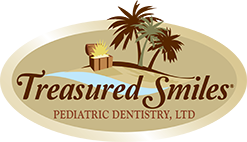Blog
Maintaining your child's oral health is one of the most important responsibilities you have as a parent. Especially for families living in or near Lemont, IL, finding a trusted dental provider is key to ensuring your child grows up with a healthy, confident smile. Pediatric dental cleaning near Lemont, IL, is more than just a routine check-up—it's a proactive step toward lifelong dental wellness.

Contact us today at (815) 806-1600 to schedule your child's appointment with trusted pediatric dental services. At Treasured Smiles Pediatric Dentistry, we understand how important it is for parents to find a warm, friendly place where their children feel safe, comfortable, and cared for. Our office is designed especially for kids with a playful environment, child-sized dental equipment, and gentle techniques making us the trusted choice for pediatric dental services.

Finding the right kids' dentist is one of the most important steps you can take for your child's health. Parents want more than just routine cleanings; they're looking for a provider who understands children's unique dental needs and makes the experience enjoyable. Fortunately, nearby options offer expert pediatric care in an environment designed just for kids.

When it comes to your child's health, maintaining good dental hygiene is just as important as regular doctor checkups. Pediatric dental cleanings play a critical role in ensuring your child's teeth stay healthy, clean, and cavity-free. At Treasured Smiles Pediatric Dentistry we emphasize the importance of regular dental cleanings to help build a foundation for a lifetime of good oral health. Below are five key reasons why pediatric dental cleanings are essential for your child's well-being.
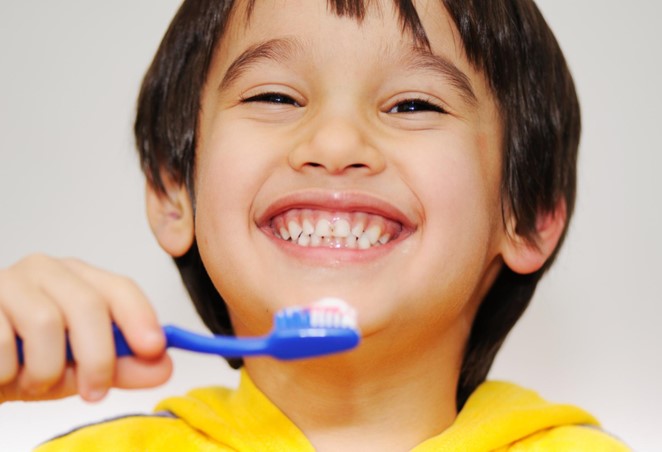
Teaching your child to brush their teeth is an essential part of parenting that will set the foundation for a lifetime of good oral hygiene. Although it can be challenging at times, the benefits of good dental habits are undeniable, and with patience and consistency, you can help your child develop proper brushing techniques. This blog will guide you through effective ways to teach your child how to brush their teeth.
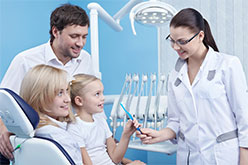
Fluoride is a type of cavity prevention treatment your dental professional can provide for your kids. Read on to learn reasons to give your kids fluoride care.
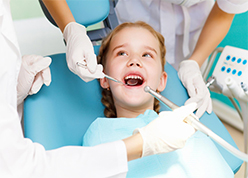
Navigating the dental care of your child can be a challenging task. One aspect that often raises questions for parents is sedation dentistry. Understanding whether this approach is suitable for your child involves examining various factors, such as the benefits, types of sedation, and specific situations where it may be necessary.

Thumb sucking is a common behavior among young children and often provides comfort and security. Though seemingly innocuous, long-term thumb sucking can pose substantial risks to your child's dental well-being. As a parent, it is crucial to understand how this habit can affect their teeth and how a pediatric dentist can help guide you through any necessary interventions. In this blog, we'll discuss the causes and effects of thumb-sucking and methods for breaking the habit.
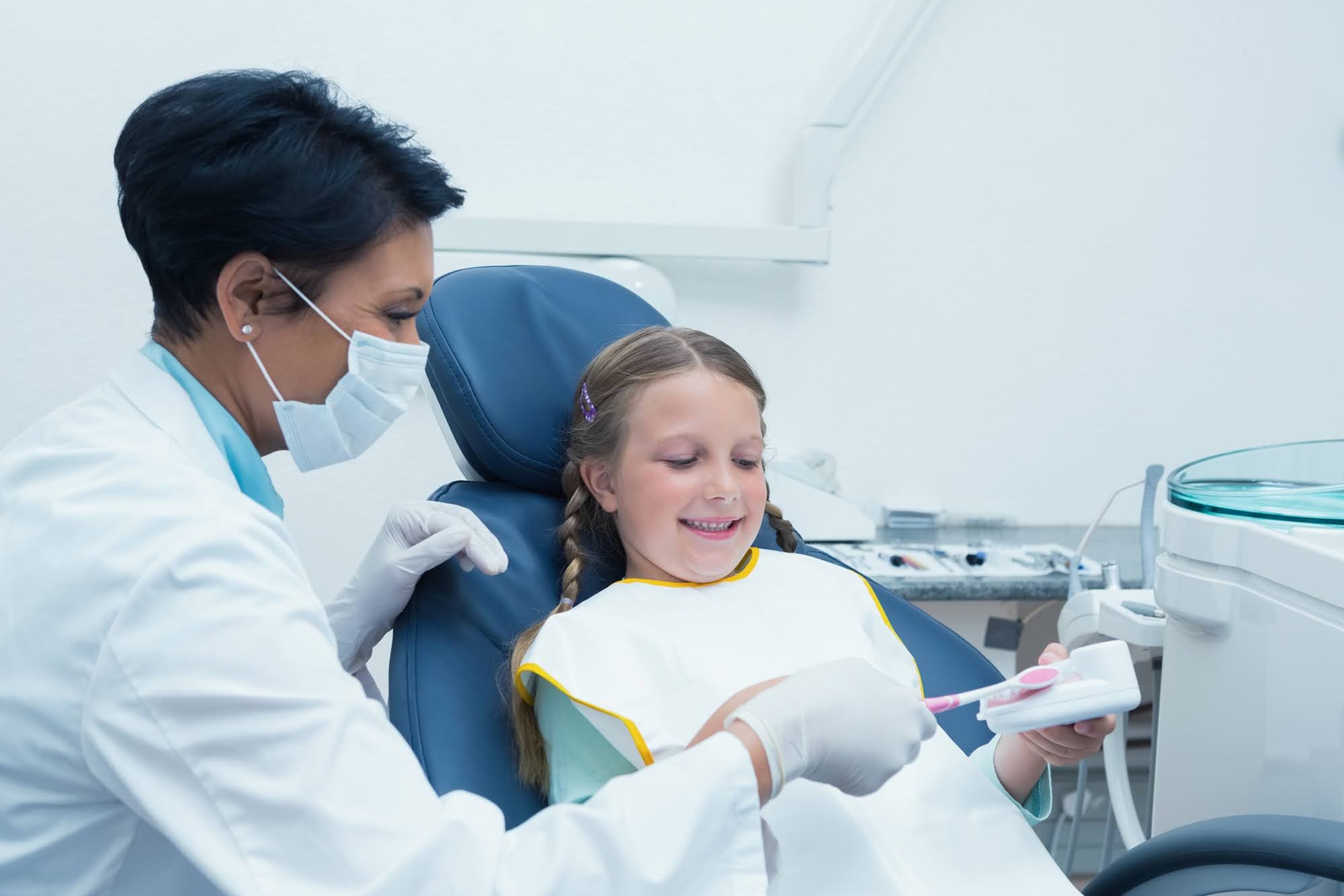
Every parent wants their children to grow up healthy and happy. An often overlooked aspect of a child's overall health is their dental care. Preventive dental care is not just about keeping a child's teeth clean; it's about setting the foundation for a lifetime of good health.

Primary teeth, commonly known as "baby teeth," are crucial for a child's growth and well-being. Though they are later replaced by permanent teeth, their maintenance is essential. Instilling good dental habits early on not only leads to a radiant smile but also establishes the cornerstone for lifelong oral health. This blog delves into the substantial advantages of tending to primary teeth and provides actionable advice for preserving their well-being.

As parents, we understand the importance of dental hygiene for our children. We make sure they brush their teeth a couple of times a day, but how often do we include flossing in their routine? Flossing is just as important as brushing and should not be neglected. It helps remove food particles and plaque from between teeth, preventing cavities and gum disease.
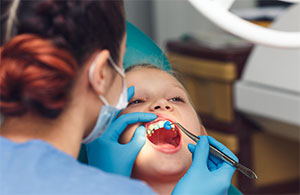
As a parent, you want to ensure that your child has healthy teeth and gums. One essential tool in achieving this goal is fluoride. Fluoride plays a crucial role in preventing tooth decay and strengthening enamel, making it an important component of your child's dental care routine. In this blog, we'll discuss what fluoride is, why it is benefici

Parents often wonder about the perfect age to start worrying about their children's dental cavities. You may have heard the notion that "baby teeth are temporary, so they don't matter as much"— that couldn’t be further from the truth. Understanding the timing, reasons, and preventive steps against childhood cavities is crucial knowledge that can save your child from unnecessary pain and dental complications.
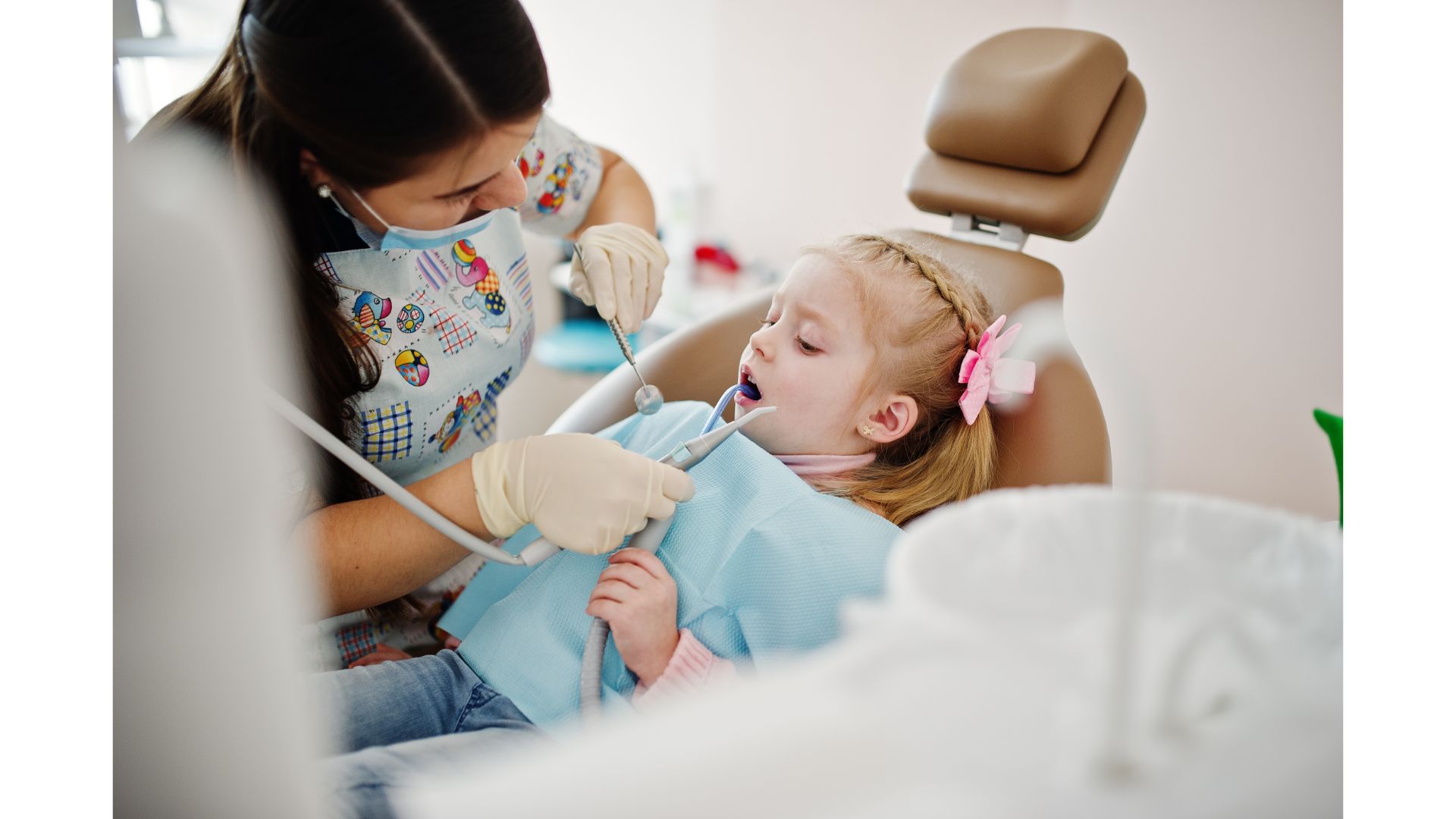
Taking your child to their first dentist appointment can be a scary and overwhelming experience for both parents and children. However, with the right preparation and information, you can help ease their anxiety and make the visit as smooth as possible. In this blog post, we will discuss the importance of pediatric dentists, what information to share with your child before their first appointment, and how to make the experience a positive one for everyone involved.
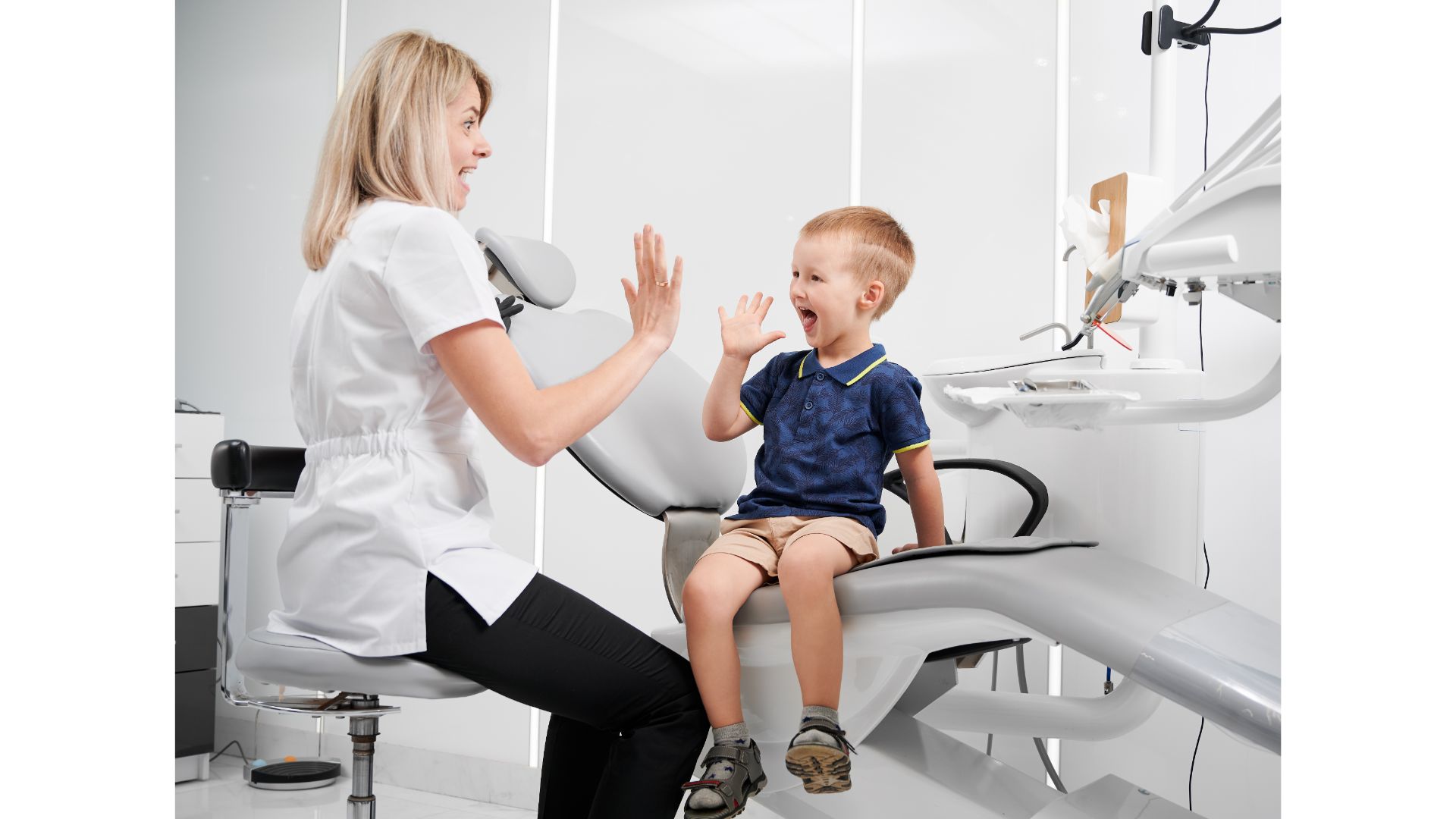
Choosing a pediatric dentist for your special needs child is crucial to ensuring they receive the best possible dental care. Special needs children often have unique challenges when it comes to oral health, such as sensory processing issues or a fear of the dentist. They may also have different physical abilities than other children, making their needs for specialized tables and dental tools or procedures of great import.
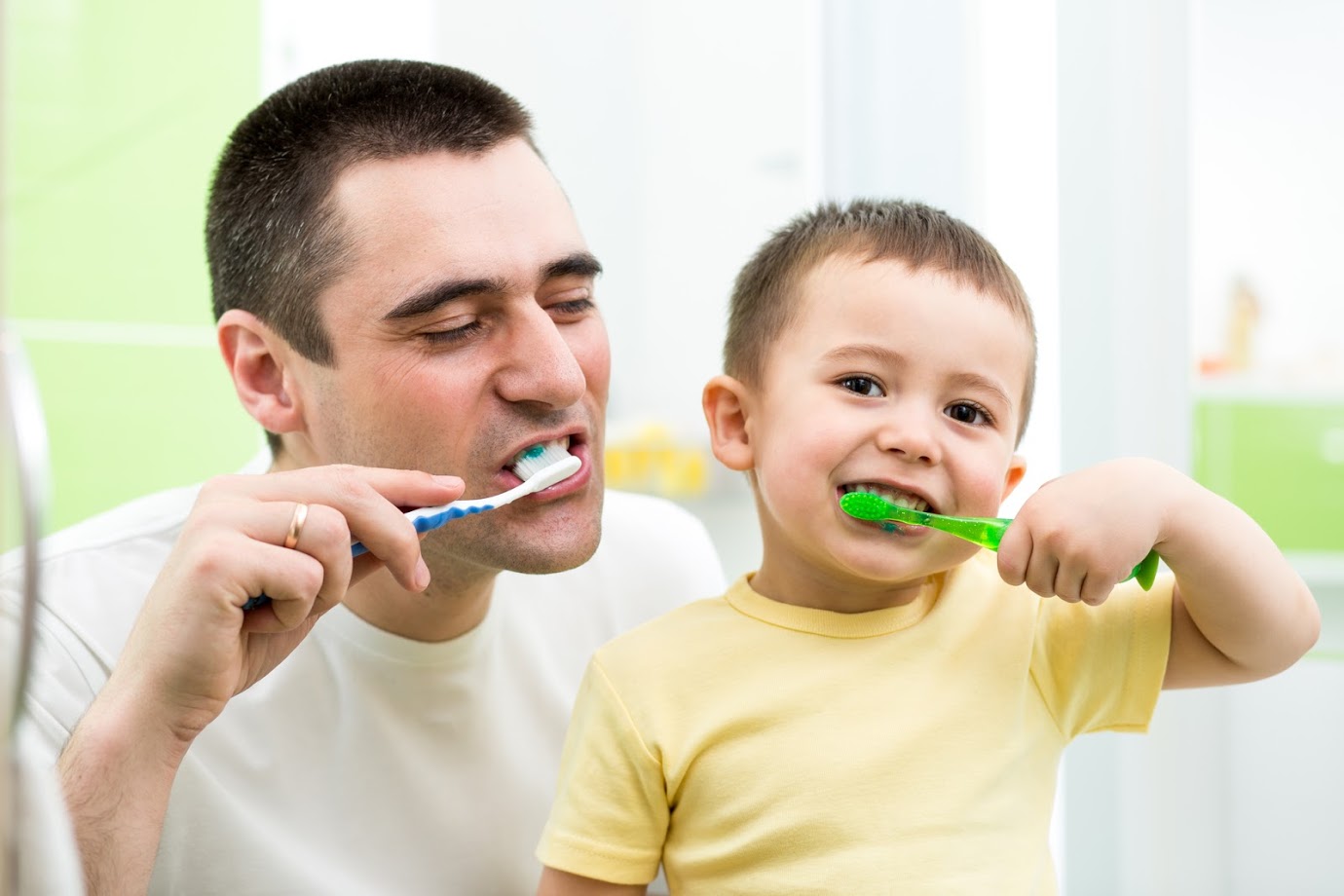
When it comes to dental care, many of us may not realize just how important it is for young children. Read this blog to learn about it's importance.
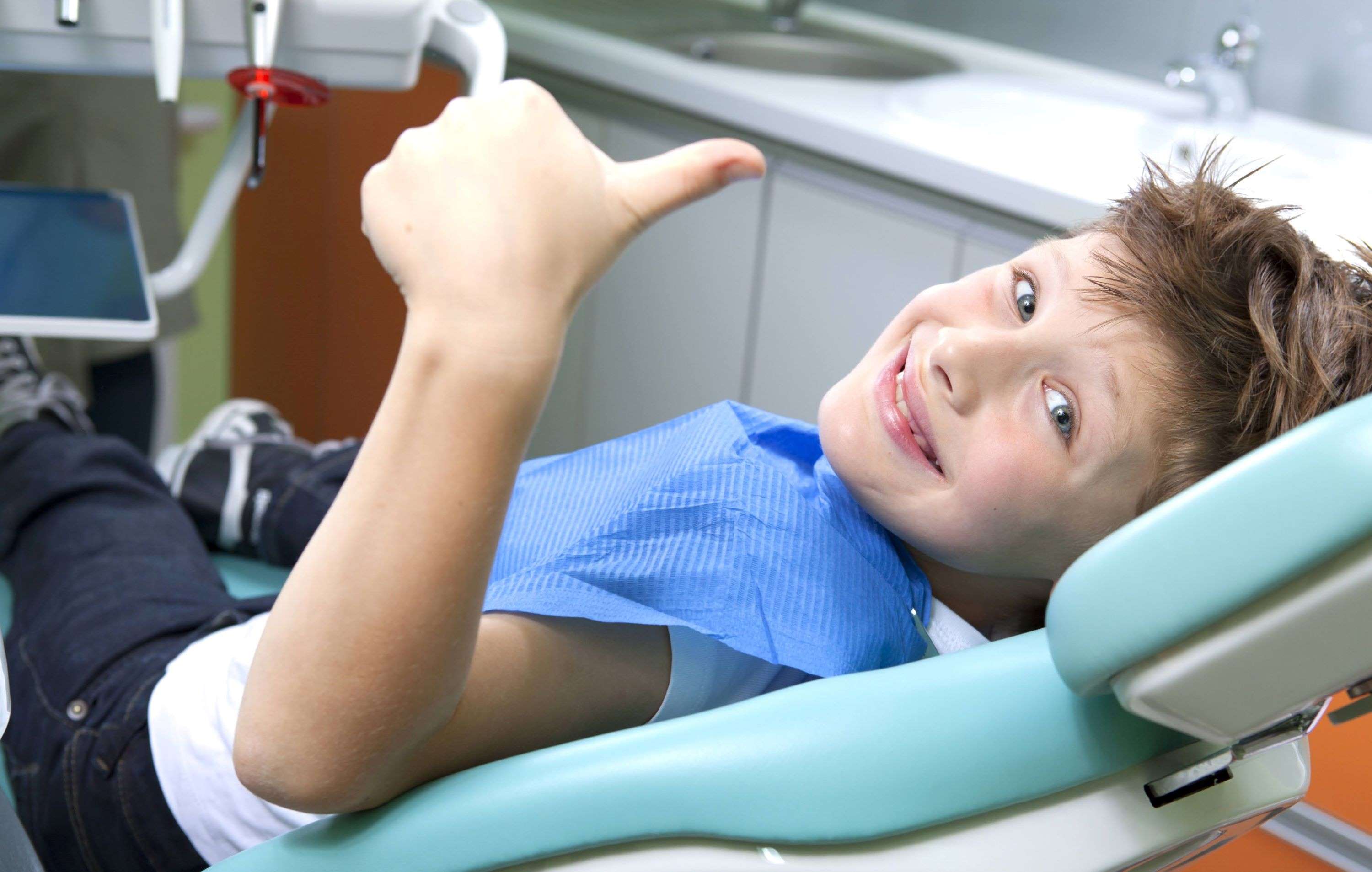
As a parent, it's crucial to instill good oral hygiene habits in your children from an early age. Read this blog on dental lessons to teach your kids.
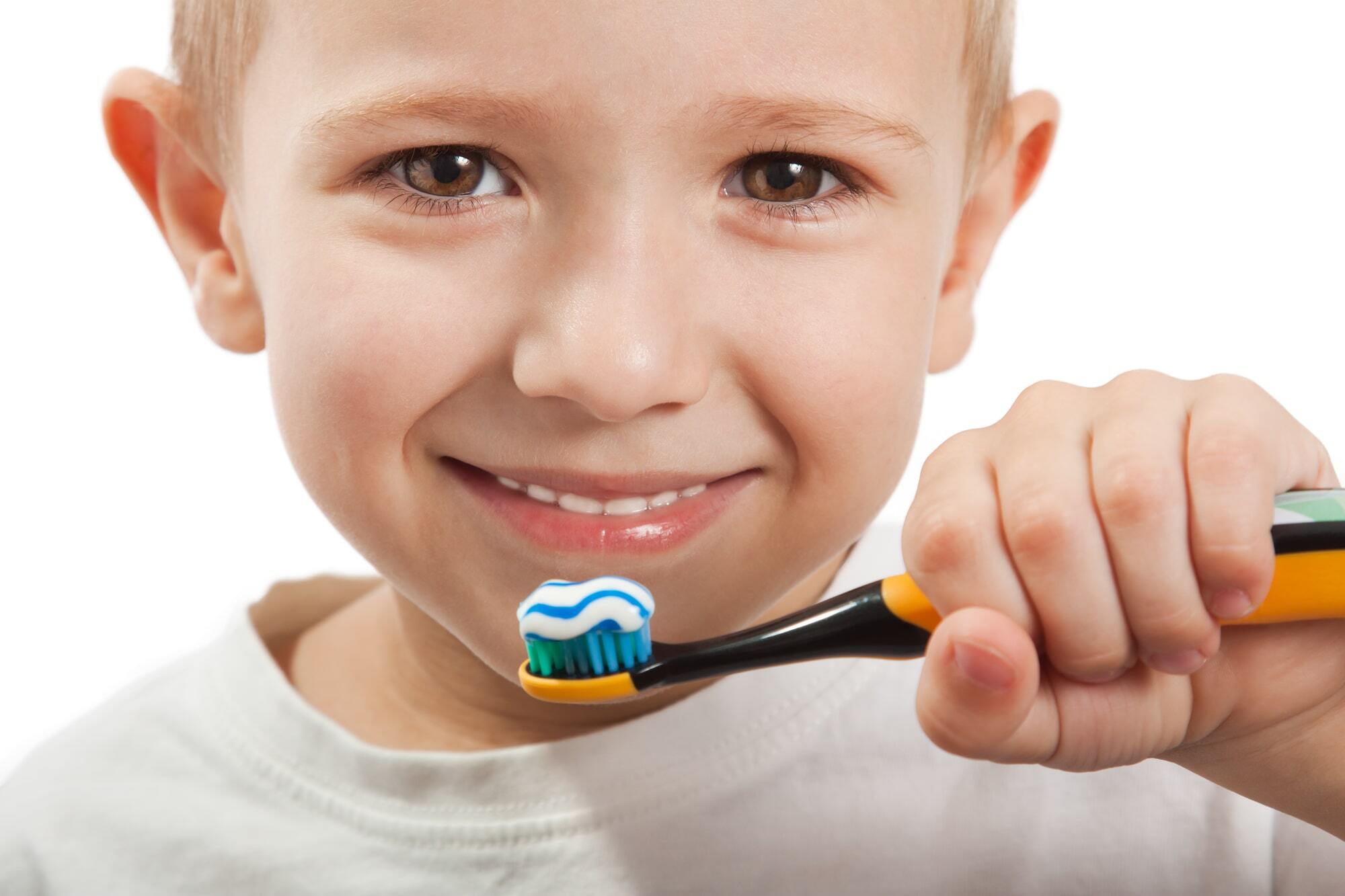
Maintaining good oral hygiene is crucial for children's overall health. Read on to learn how choosing the right toothpaste for your child can help!

Dental anxiety is common among children and can make their dental visits a daunting task. Explore four tips for helping your child overcome dental anxiety.

Fluoride is an important mineral that protects tooth enamel. It's often added to municipal water supplies, and it's a common ingredient in toothpaste and mouthwash. Fluoride is proven to protect tooth enamel from cavities if you also provide proper dental care for your child.
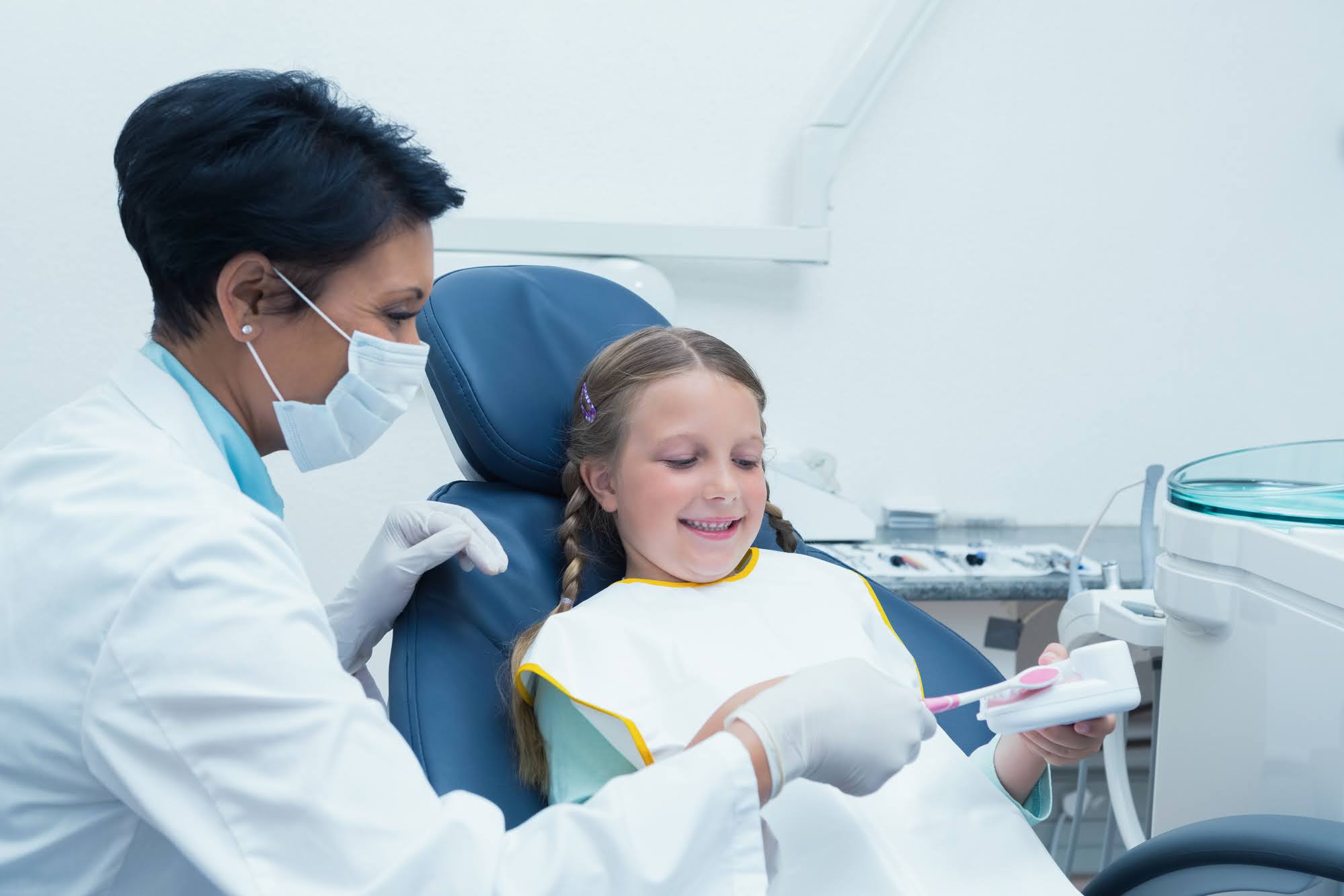
Dental anxiety is a common issue that many children face when visiting the dentist. Things like unfamiliar surroundings, strange sounds, and a fear of pain can make dental appointments stressful for your child.

The journey from gummy grins to pearly whites is a big part of your child's health. Learn the different stages of your child's dental development.

Teaching your children good oral habits helps maintain their dental health. Learn what techniques will instill good dental hygiene habits in your children.

Some areas of your child's teeth can be difficult to clean. That's where dental sealants come in. Discover the benefits of dental sealants for children.
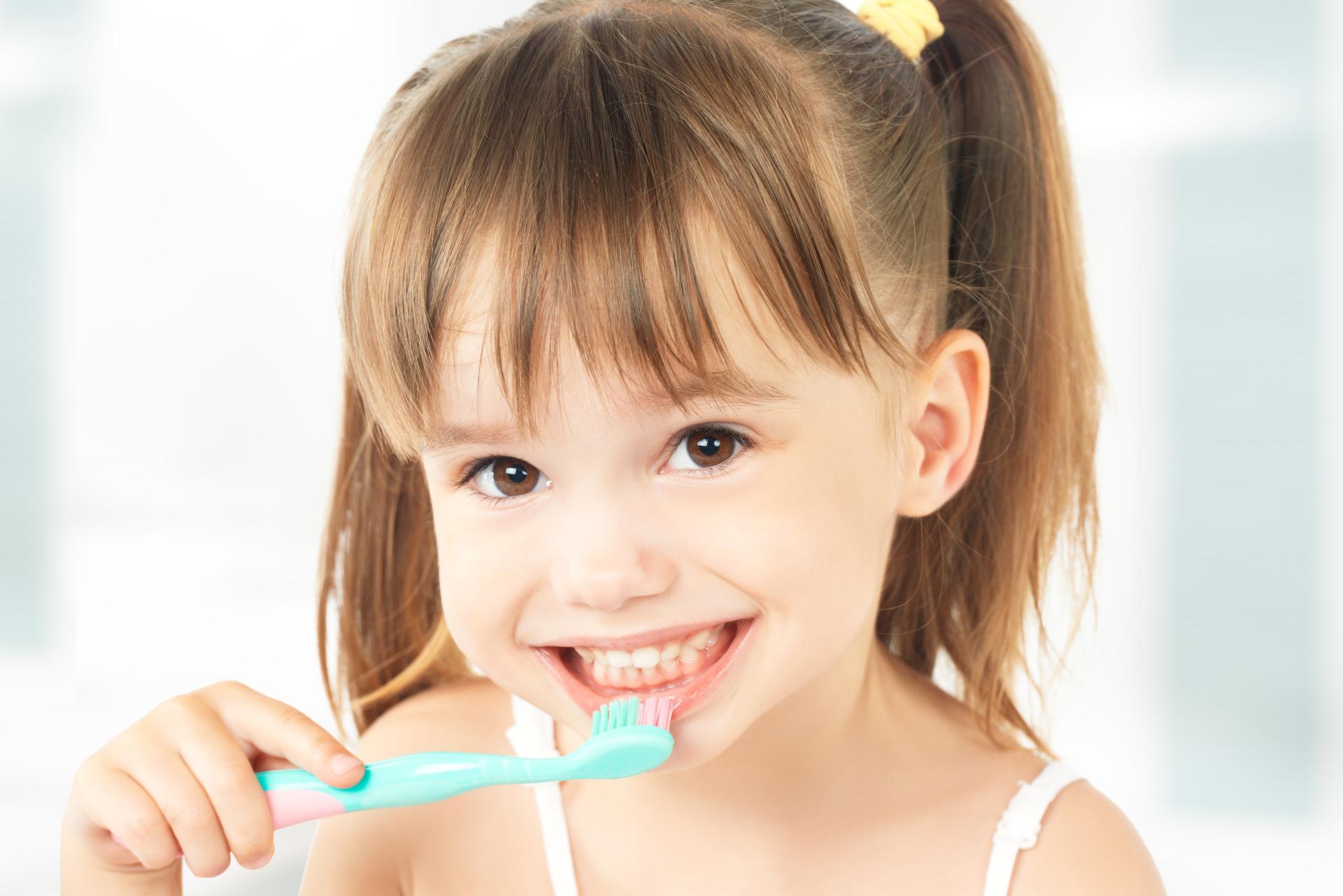
Gum disease is a common oral condition that doesn’t spare children. Learn more about gum disease and how it relates to children by reading this blog.
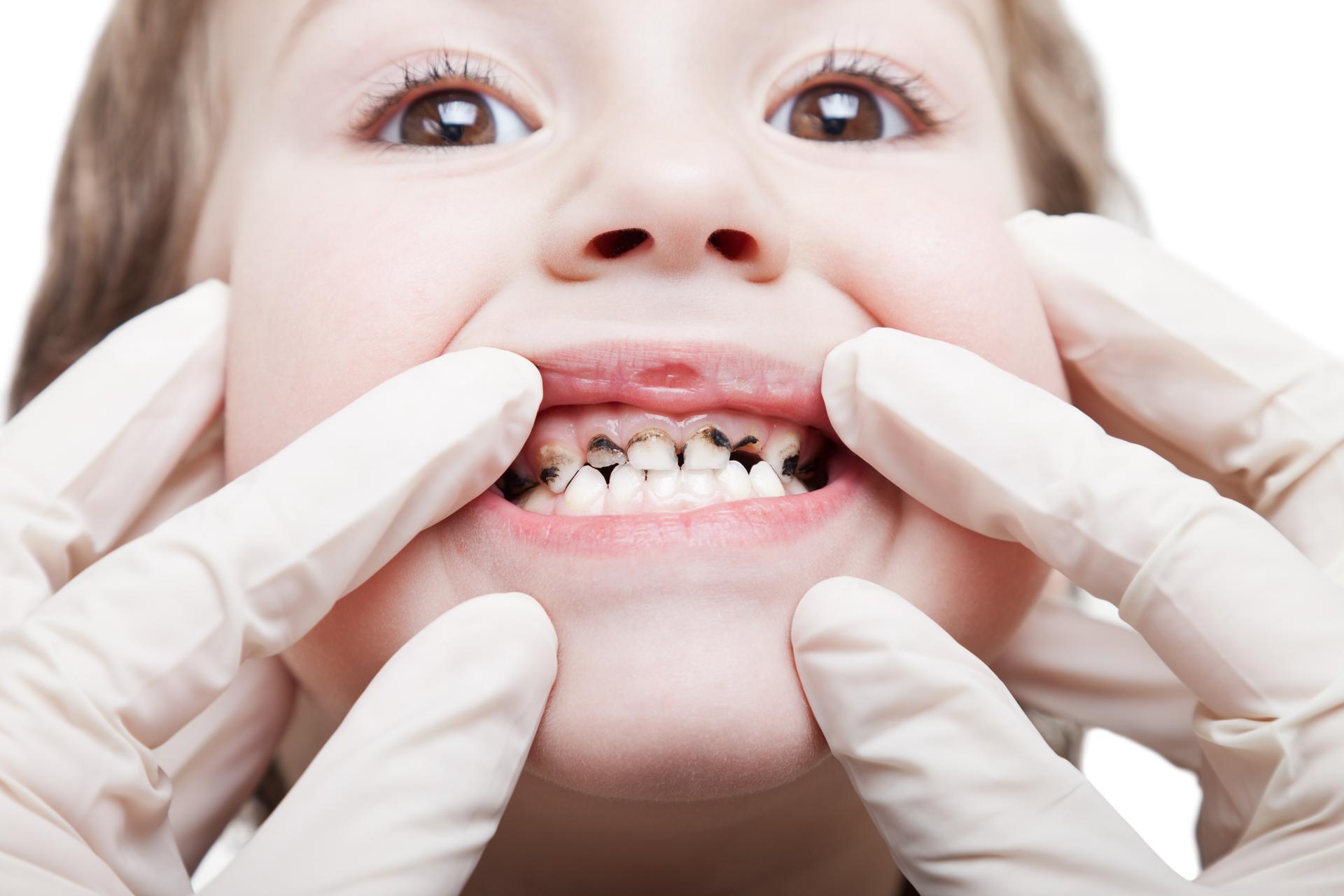
Children’s teeth should be an even white color. Read this blog to learn what causes tooth discoloration and how you can prevent and treat it.

Start your child off on the right foot with proper dental care early in childhood. Learn the importance of this early dental care by reading this blog.
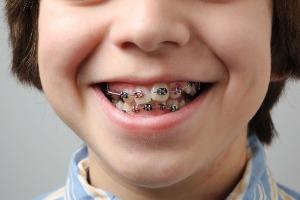
Malocclusion is a medical term used to describe any malformation of the teeth that prevents your upper and lower teeth from aligning when your mouth is closed. Malocclusion typically begins in childhood and may worsen as a child grows. Unfortunately, malocclusion can cause several problems when left untreated. Read this blog to better understand malocclusion and how it’s treated.
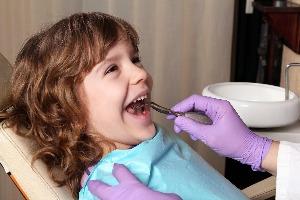
It's natural for kids to be a little nervous about going to see the dentist for the first time. See how to prepare your child for their first dental visit.

One of the most significant milestones for any parent is the baby's first tooth, but baby teething comes with challenges. Read on to learn how to handle teething and help your baby.
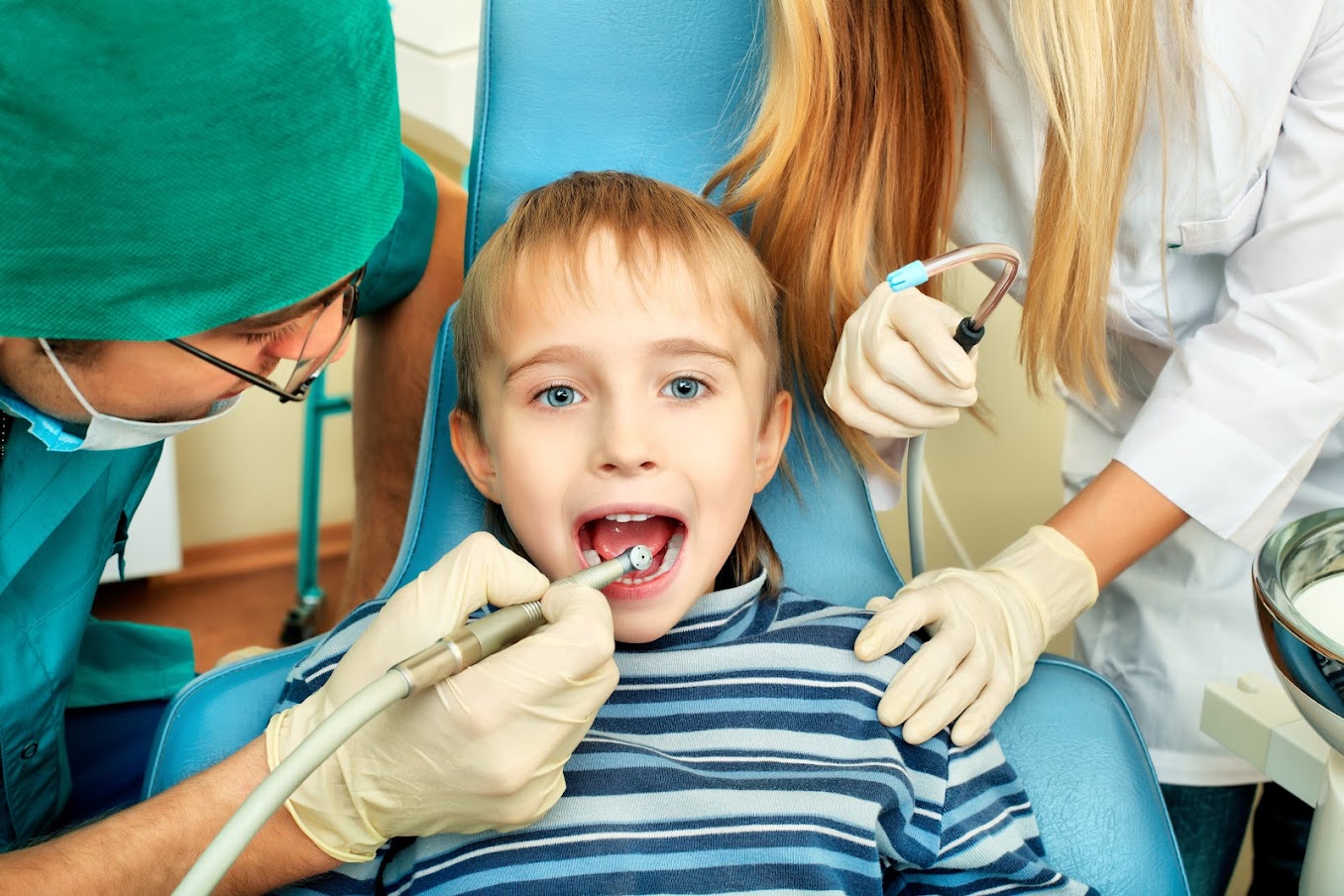
Did you know your child's oral healthcare routine sets the tone for their oral health in the future? Oral hygiene is an essential part of dental care. It is also the part of dental care that many children struggle with. Many children do not like brushing their teeth, and the younger they are, the more likely it is that they are not brushing correctly. For these and other reasons, dentists recommend that children get dental cleanings every six months, just like adults. Learn why regular dental cleaning is vital for your child.

According to the Center for Disease Control and Prevention (CDC), more than half of children have had at least one cavity by age eight. It is a startling statistic, considering cavities are preventable with proper dental care.
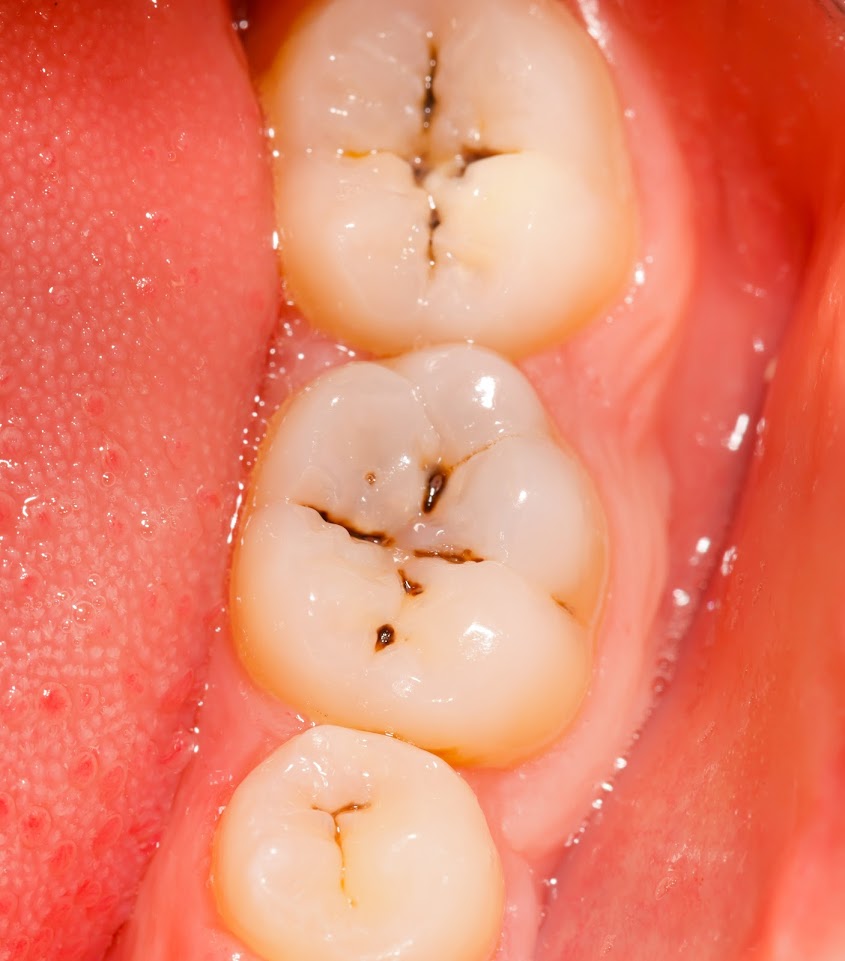
A child should visit the dentist once their first tooth appears. Although baby teeth will fall out, taking good care of your child's baby teeth will lead to healthy permanent ones.

Tooth sensitivity is not an experience that you want your child to have. It is an unpleasant tingling sensation that occurs when you chew or drink hot or cold foods. Due to the immense discomfort, this can make your child develop poor eating habits which will have a negative effect on their growth.

You may have gotten excited when your baby cut their first tooth, but do you know that baby teeth require care? Even if they fall out after some years, your child's baby teeth are as important as your permanent teeth.

At least 30 percent of the population battles with bad breath, a condition medically called halitosis. Learn more about what causes this condition.

Children are not immune to dental concerns like tooth sensitivity and infection. Learn five common signs that your child needs emergency dental services.

Does your older child still have some of their baby teeth? Read on to learn more about baby teeth and why your child may still have them.
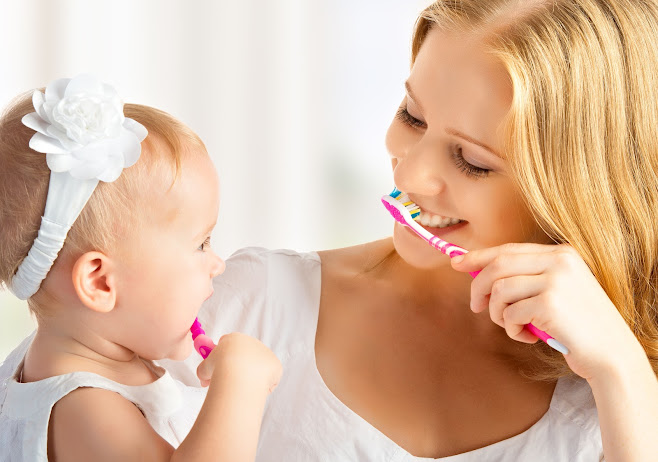
Which toothbrush and toothpaste should your child use? Children of different ages have different needs. Learn how your child’s needs will change over time.

If you have a new baby, a bottle can promote dental decay. Discover crucial information about baby bottle decay and how you can avoid it.

Some children find the idea of going to the dentist an unpleasant thought, which may be caused by dental anxiety. See a few ways to address this issue.
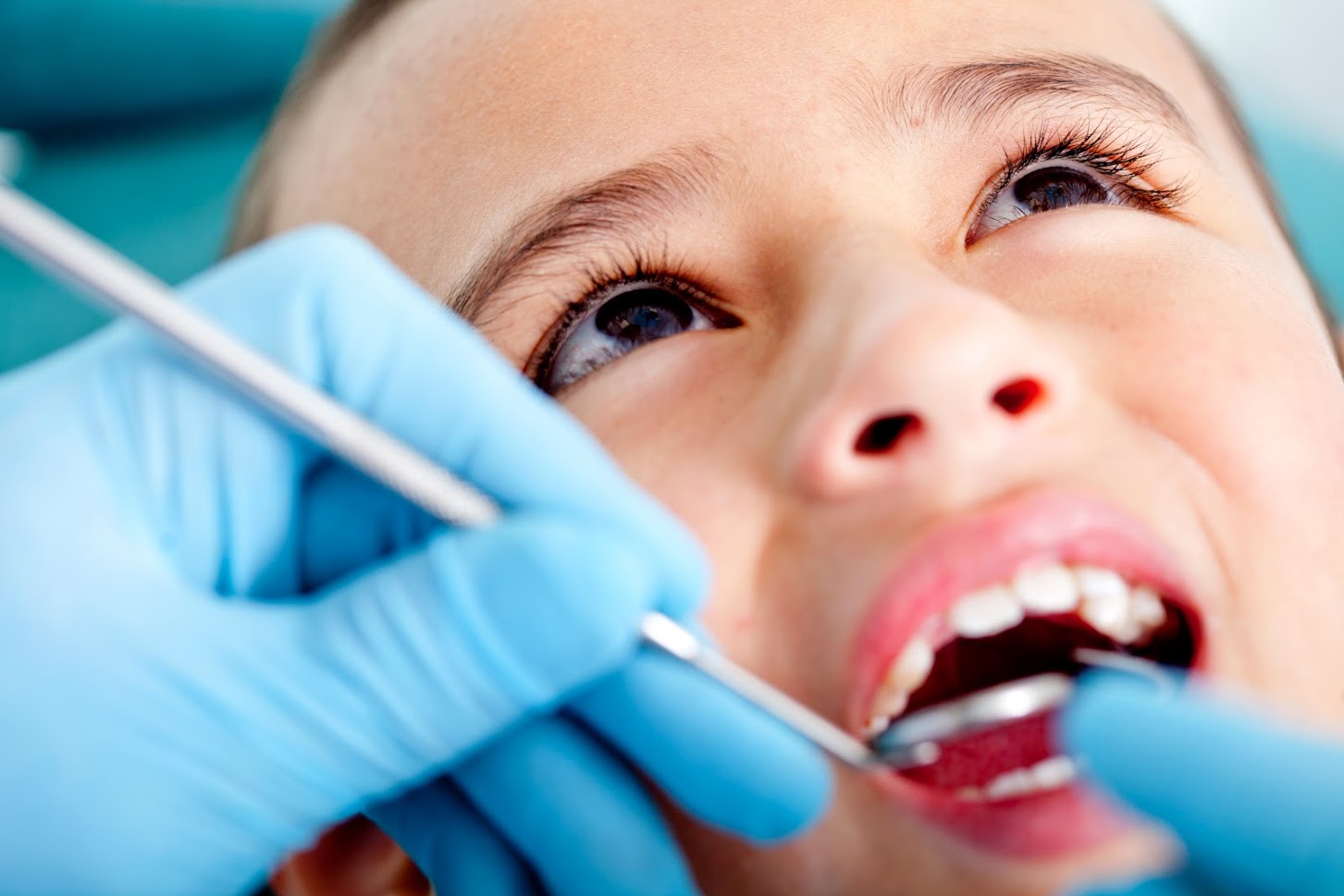
Recent times have created a lot of stress for children. Stress can impact children’s teeth, mouth, and smile. Discover some of the indicators you may see.

Growing up comes with a log of changes. One major change is to the teeth. Learn the difference between primary and permanent teeth by reading this blog.
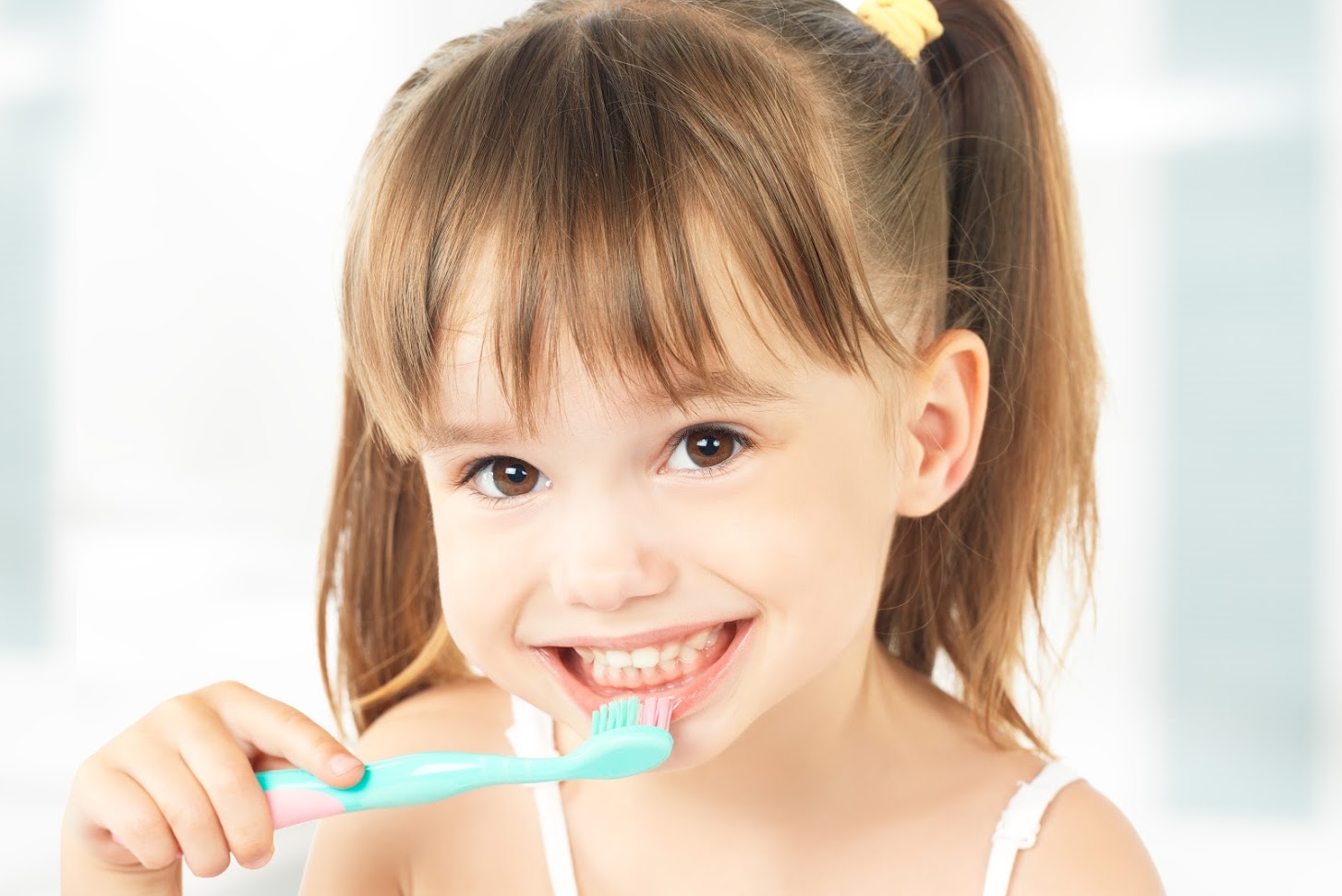
From the moment your child is born, dental hygiene is an important part of their care. Use this tooth care timeline to care for your youngster's teeth.

Sometimes, a child can mention their mouth or teeth hurt. If your child is complaining of tooth pain, discover three things that might be the cause.

Adolescence is a period of exploration and adventure. During this stage, your teen will be going through one of the most challenging and important stages of their life. Kids learn how to deal with their emotions and try out new things during adolescence. However, these adolescent years can lead to poor dental hygiene and consequently dental problems.
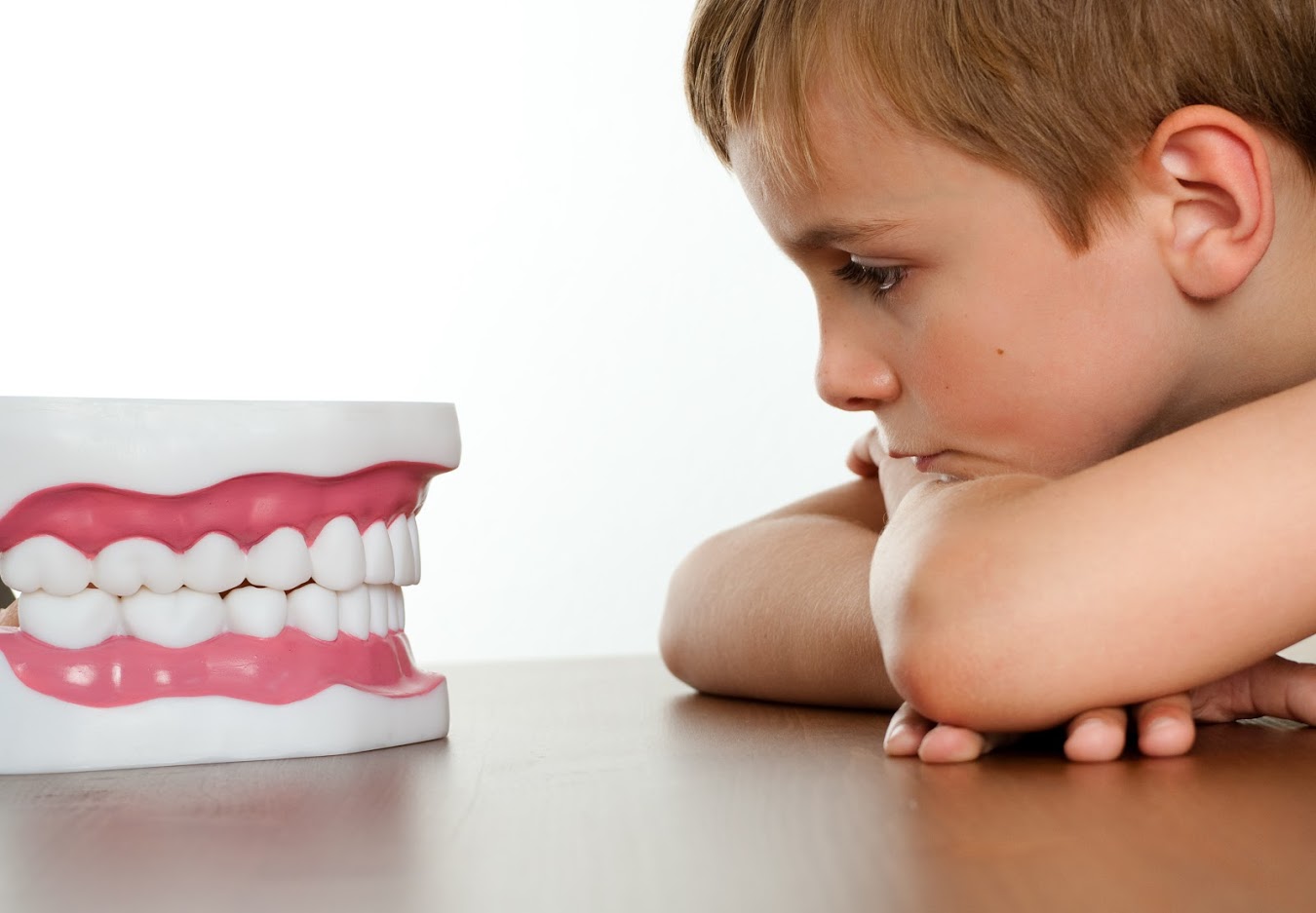
Occasional teeth clenching might not cause much damage to your child’s teeth. However, you should intervene in cases of chronic teeth grinding and clenching. Read on to learn the causes, signs, and how to manage bruxism, or regular teeth clenching and grinding.

Many children need sedation dentistry to best deal with a wide variety of dental issues that pop up during childhood. Still others need it for routine dental exams. Studies have shown that it is a safe solution to many problems that children may have with dental treatment. Consider these reasons you may want to choose sedation for your children during their next dental visit.

Diet plays a big role in oral or dental health. A good diet is especially necessary for children whose oral tissues, including teeth, are still forming. Early adoption of good eating habits may also help the child retain the habits for life. Below are three tips for eating habits that will promote good oral health for your child.

If you notice that your child has another row of teeth erupting behind his or her baby teeth, you may wonder if this new row is a cause for concern. What you could actually be seeing are incoming adult teeth. This extra row of incoming adult teeth is colloquially known as shark teeth. Take a look at why this happens and whether or not your child needs treatment.

If you have a heart condition or pacemaker or you are at risk for heart disease, then you may visit a cardiologist to treat your condition and reduce the risk of heart attack, stroke, or other complications. While it may seem odd to visit a dentist to treat your heart condition, it's actually an important part of your overall care.

As a parent, you likely set a standard for your child's dental health. Children mirror what they see, and you can demonstrate the need for excellent dental care.

If you find yourself wincing with pain when you drink hot or cold beverages, find out what you can do to fix your overly sensitive teeth.

Did your child miss their last dental checkup? If you're not sure whether to reschedule the appointment right now or wait until later, take a look at the questions to ask.

Don’t wait for a crown. CEREC can give you the crown you need the same day. Discover some key points to understand about CEREC and its benefits.
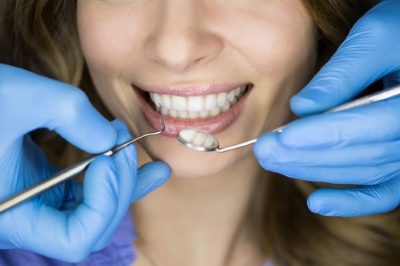
No one wants bad breath. Proper oral hygiene can help prevent bad breath, and your dentist can add extra protection. Learn about a variety of dental treatments and procedures used to help reverse bad breath and improve your overall dental health.
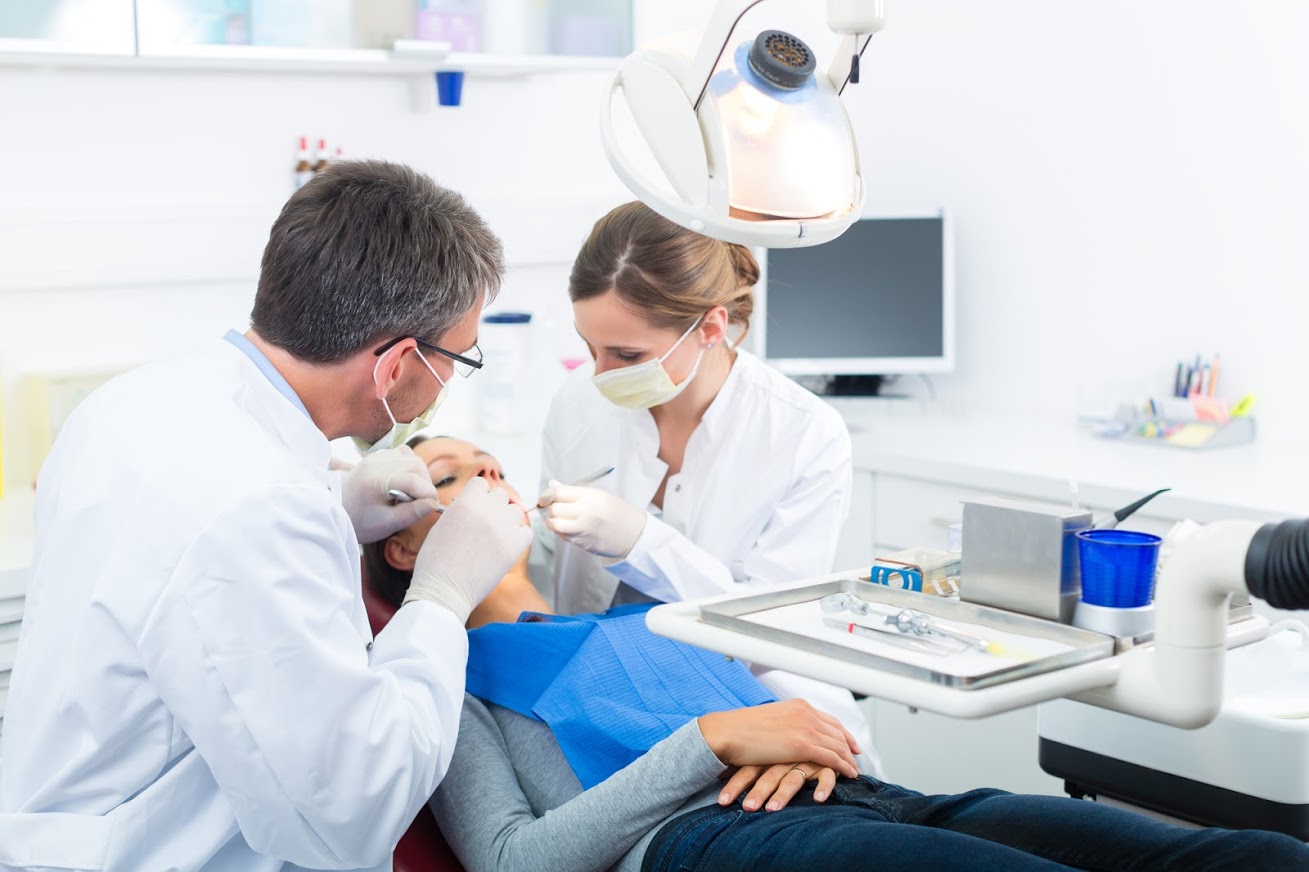
Just like your favorite jeans, teeth wear over time. In fact, approximately 97 percent of people have some degree of wear and tear on their teeth. It's a natural part of the aging process. And it doesn't really become a problem unless the process gets accelerated in some way through attrition, abrasion, or erosion.

Everyone has bad breath at one time or another, but if your breath is chronically smelly, you may have underlying causes. If you want to improve your breath, but you aren't sure what causes the bad breath, check out these five leading causes of bad breath.
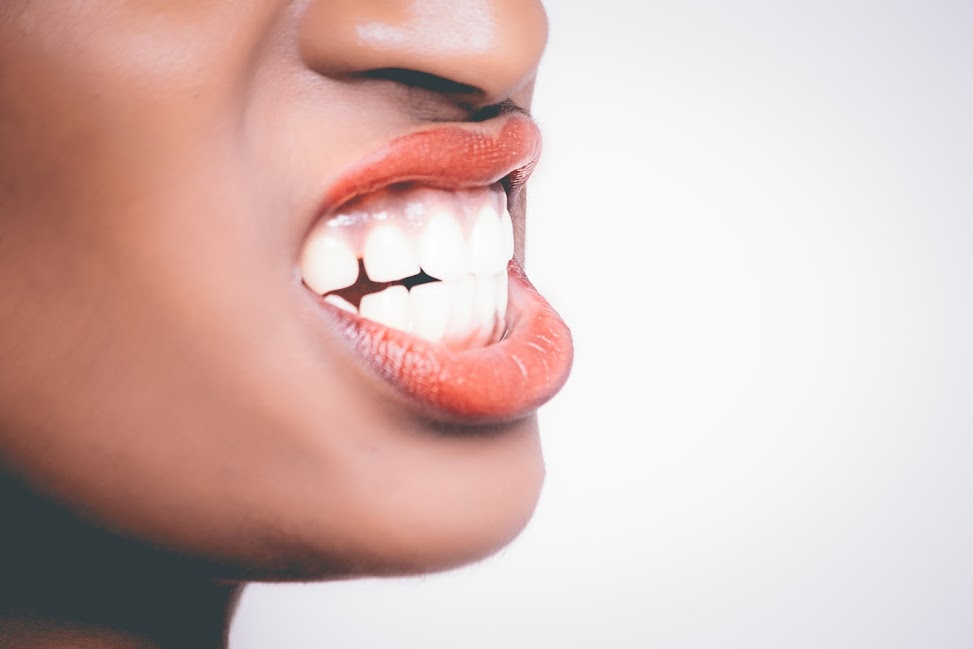
Most humans start with 20 primary teeth, which fall out to make room for the 32 permanent teeth you have as an adult. If you have hyperdontia, however, too many teeth start growing. This is medically referred to as supernumerary teeth, but they are basically extra teeth. If you believe you or your child has hyperdontia, check out these commonly asked questions to learn more.
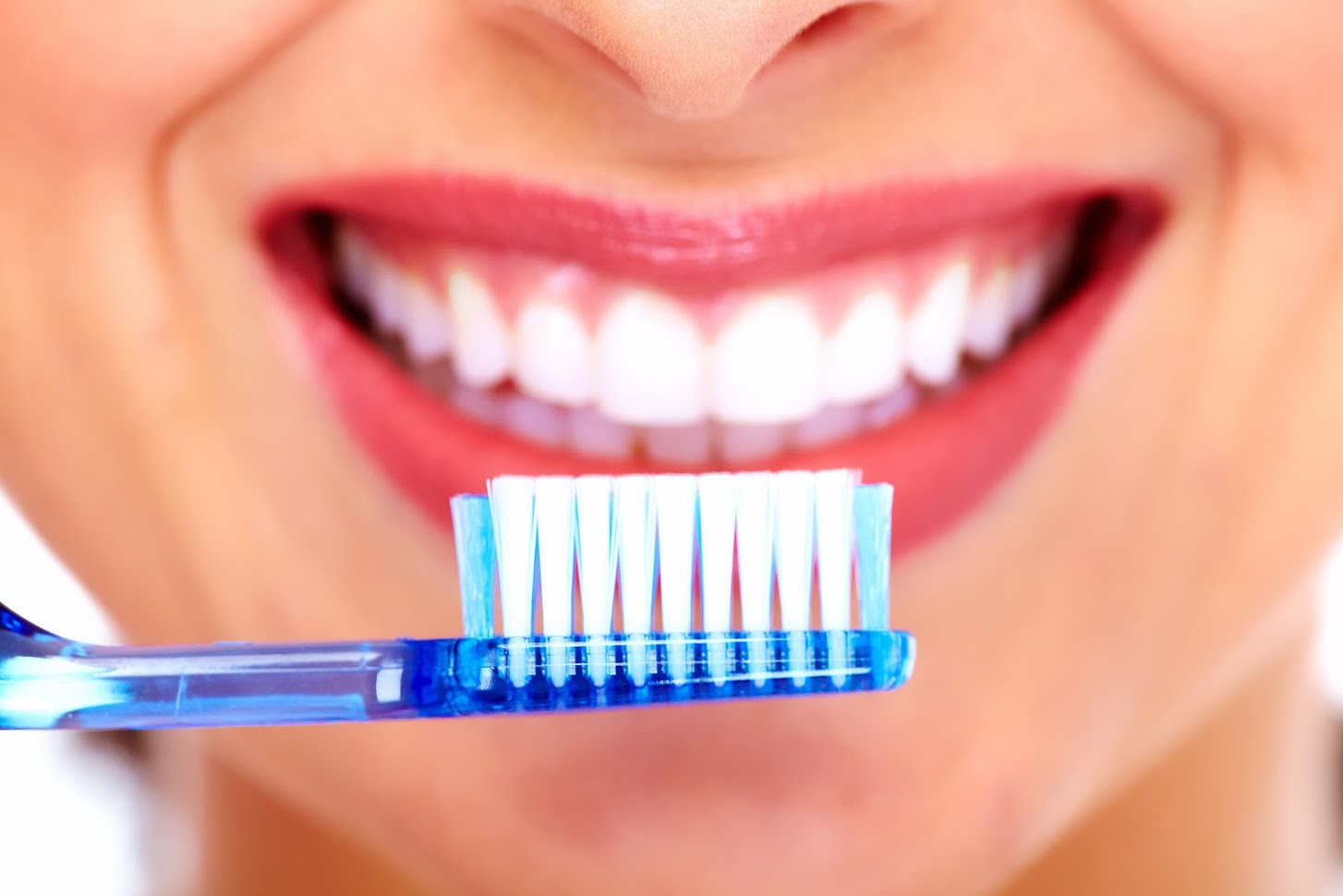
Toothbrushes clean themselves when you brush your teeth, right? Not at all. Your mouth naturally has a lot of bacteria, and while some of it is healthy, some of it is unwanted. While you may think you keep your toothbrush pretty clean, it may actually be harboring lots of potential diseases. Check out these frequently asked questions to learn more about toothbrush cleanliness.

A vacation may mean that you get to throw your routine behind you, sleep in, and eat more carbs than you normally would, but it doesn't mean that you get to throw everything out the window; especially your oral health. To make sure that you don't come back from vacation with a mouth full of cavities, this article will take a closer look at a few ways that you can keep your mouth happy while you're traveling.
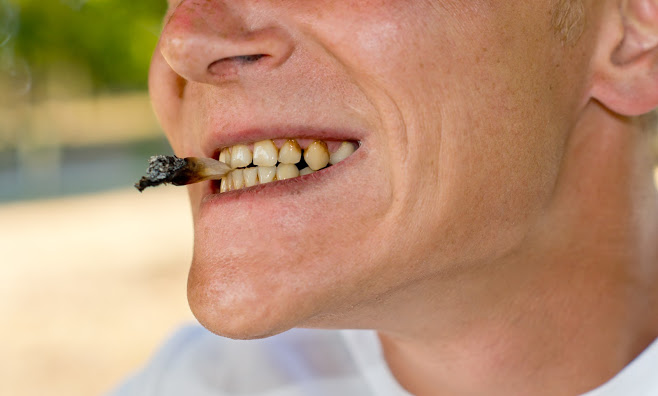
Despite the alarming and proven harmful effects of tobacco, many Americans continue to smoke cigarettes and use tobacco products like chew. Unfortunately, like many bad habits, tobacco consumption can hurt every part of your body, including your mouth and oral health. If you smoke or chew tobacco, learn how tobacco can destroy your mouth.

Your tooth surfaces provide a wonderful habitat for bacteria to grow. And because your mouth also provides a great environment for bacteria, you can never completely banish bacteria from your teeth. But fortunately, you don't need to do that in order to have great dental health. Some bacteria can actually be beneficial.

Early dental care is essential for long-term oral health, which is why you should take your child to the dentist at an early age. Not only will this familiarize them with the dentist and common dental procedures, but it will also ensure your child's permanent teeth develop as healthy as possible. Check out these facts you should know about your child's primary teeth.
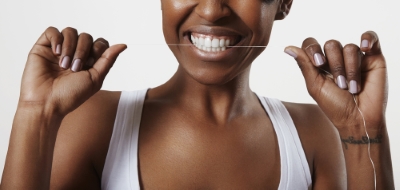
If you aren't particularly excited about starting a better flossing habit, here are a few ways you can help your gums acclimate.
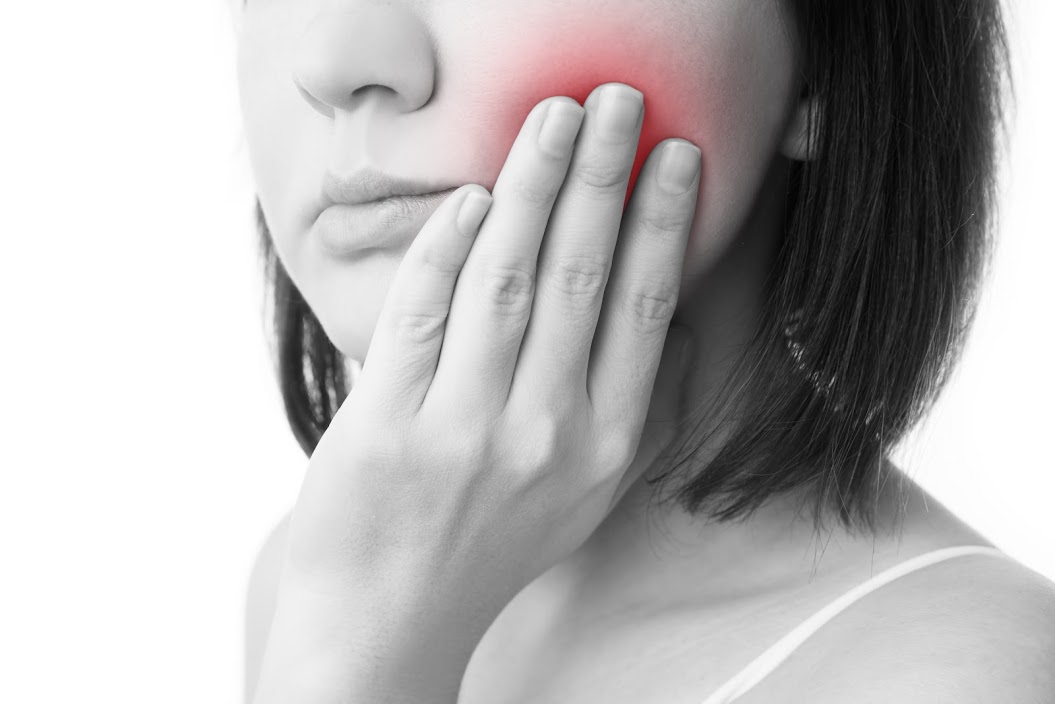
A root canal treatment may save dying teeth from needing to be removed. Learn about a few common reasons you may need a root canal procedure.

The New Year is coming soon! This is the perfect time of year to work on your New Year’s resolutions. If your smile is looking a little yellow, why not resolve to improve its appearance? Adopt these six healthy dental hygiene habits to brighten your smile in the coming year.
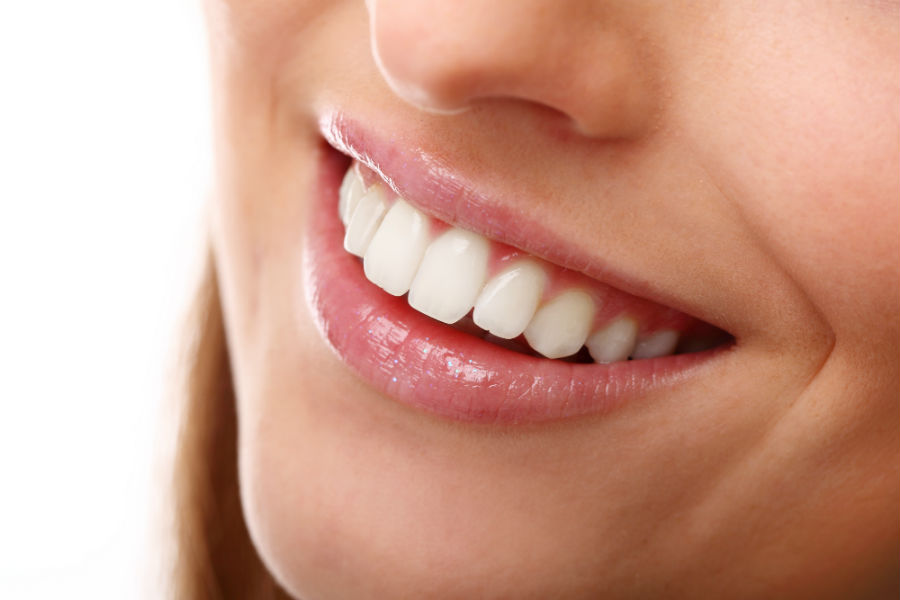
Today, patients with discolored, cracked, chipped, and decayed teeth have an array of tooth repair options. Dental implants, crowns, and veneers are some of the cosmetic dentistry solutions for unsightly teeth and gaps in the smile.

Your child with autism spectrum disorder (ASD) deserves to have a healthy smile. Learn some tips for helping your child with ASD take care of their teeth.
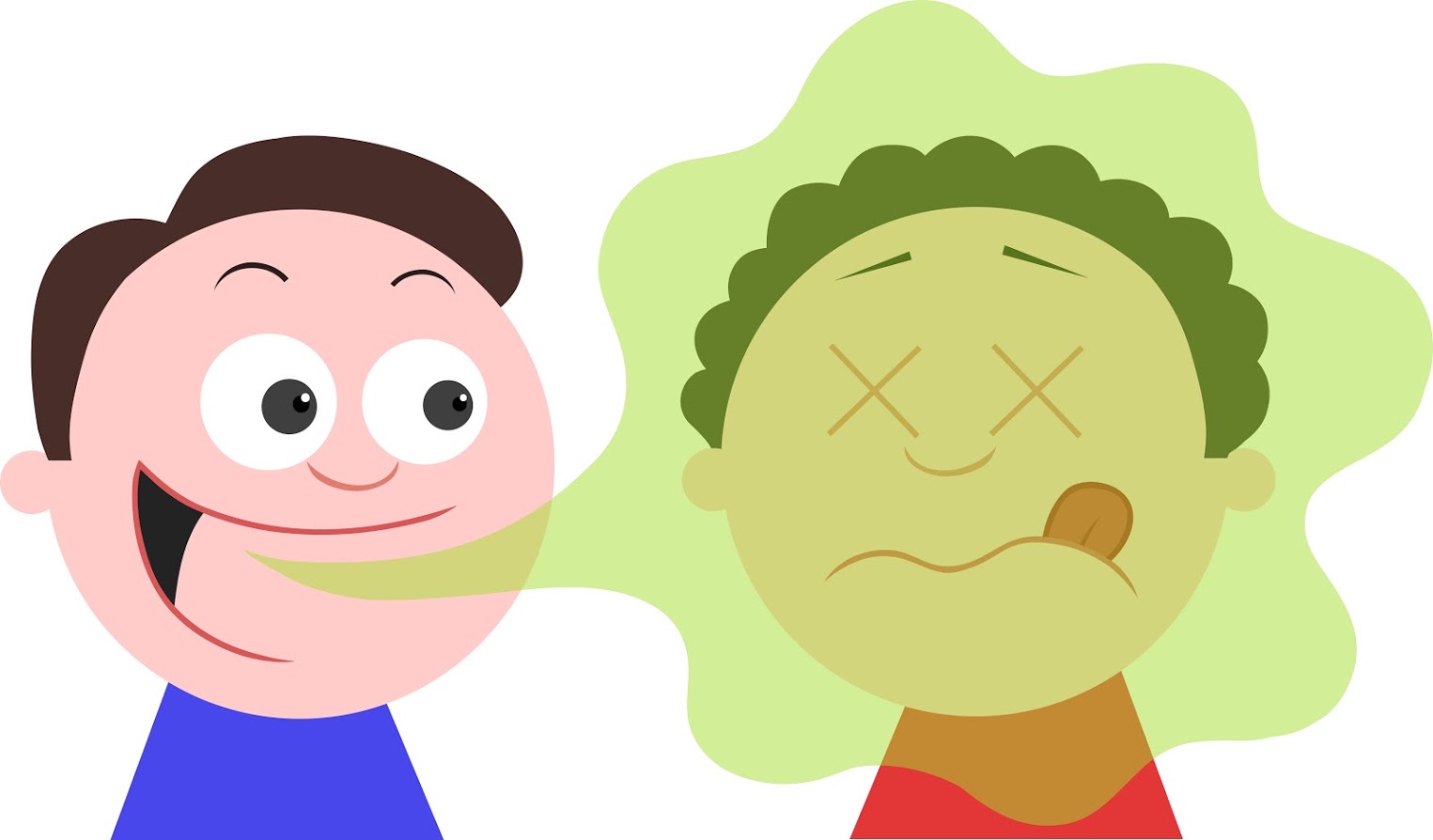
From smoking to drinking too much coffee or soda, several things can cause adults to suffer from halitosis, or bad breath. Indulging in bad habits are a few reasons why a parent lives with halitosis, but why does this condition also affect their child? Children of all ages, from toddlers to teenagers, live with bad breath.

Continued use of pacifiers, or sucking on a finger or thumb, can negatively impact a child's dental health and appearance. Here is some important information about the benefits of pacifiers for newborns and how to help you infant or toddler beat their pacifier or thumb-sucking habit.

Kids and adults develop intense summer thirst while engaging in yard work, weekend hikes, and team sports. Keep yourself and your kids hydrated this summer with healthy, tooth-enhancing drinks. Here's what you should know about dehydration and healthy drinks.

In summer, physical injuries to teeth occur due to mishaps at sporting events, car collisions while traveling, and other incidents during summer activities like biking and swimming.

While awareness of eating disorders has grown, they are still a pressing health concern for teenagers and young adults. Children and older adults can also have eating disorders. There are a number of health problems that come from long-term disordered eating, and your teeth can suffer just as much as the rest of your body. Bulimia and anorexia nervosa both impact your oral health. While treating and recovering from an eating disorder, you'll need to confer with your dentist about how you can help get your smile back on track. Consider how your teeth can be affected by an eating disorder and what your dentist can do to help you repair the damage.

Extra teeth can grow in front of or behind the baby teeth inside the mouth of a small child. An extra tooth may begin growing between the two front permanent teeth of an older child. Two peg-shaped teeth may form behind a child's top incisors. An entire extra mouthful of tooth buds can grow alongside a child's actual teeth.
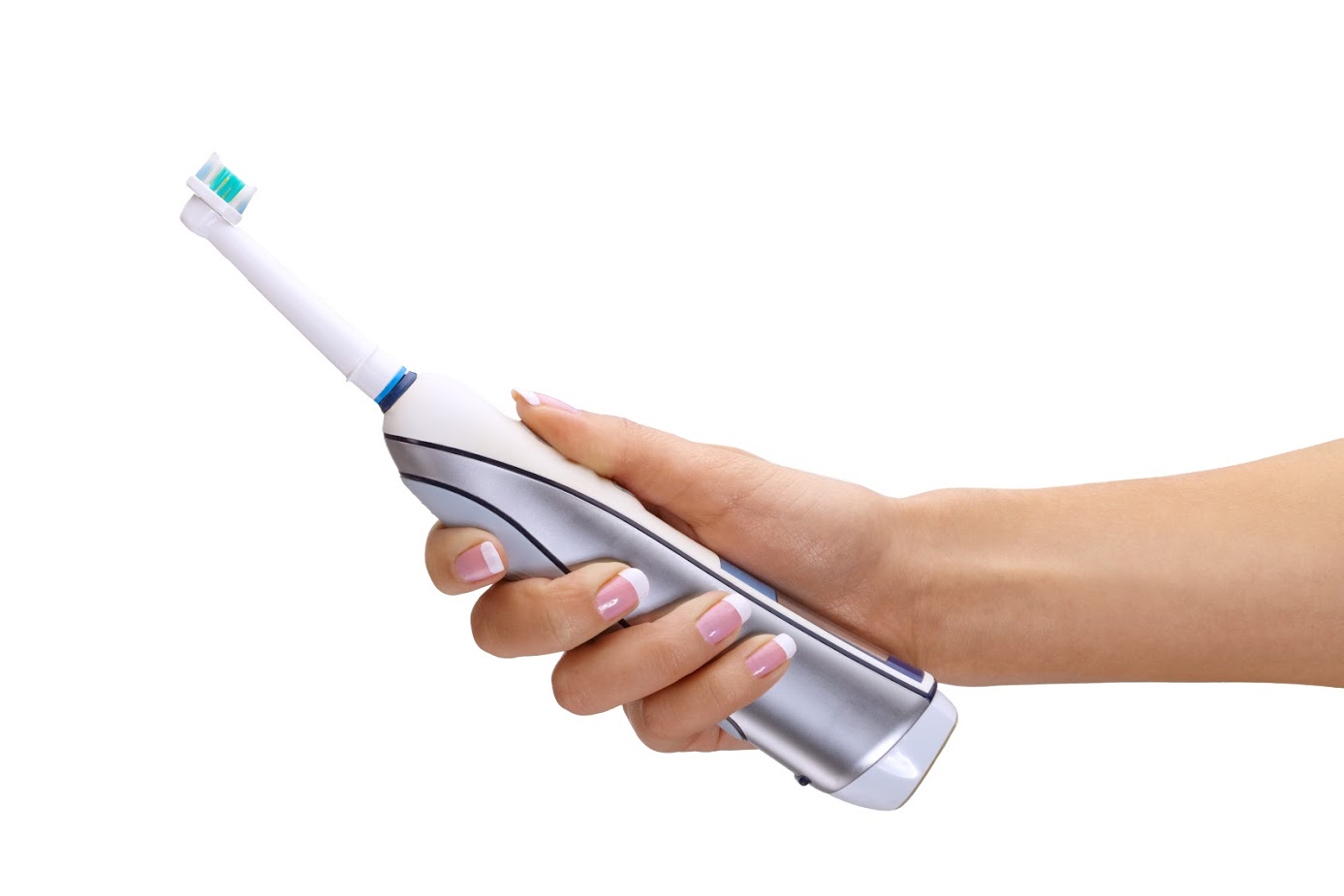
Healthy teeth don't happen by accident. Many people must make specific lifestyle choices and develop good habits that can help them keep their teeth healthy. Knowing the best way to floss, brush, and care for your teeth can help you avoid dental problems like cavities.
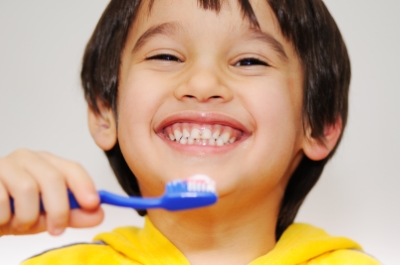
Children need to learn proper brushing techniques and develop healthy habits from the start. Otherwise, they may suffer with tooth decay that can lead to a variety of problems. According to ABC News, children in the U.S. lost 51 million school hours to dental problems in one year. Help your kids prevent tooth decay by teaching them how to rock at brushing their teeth.
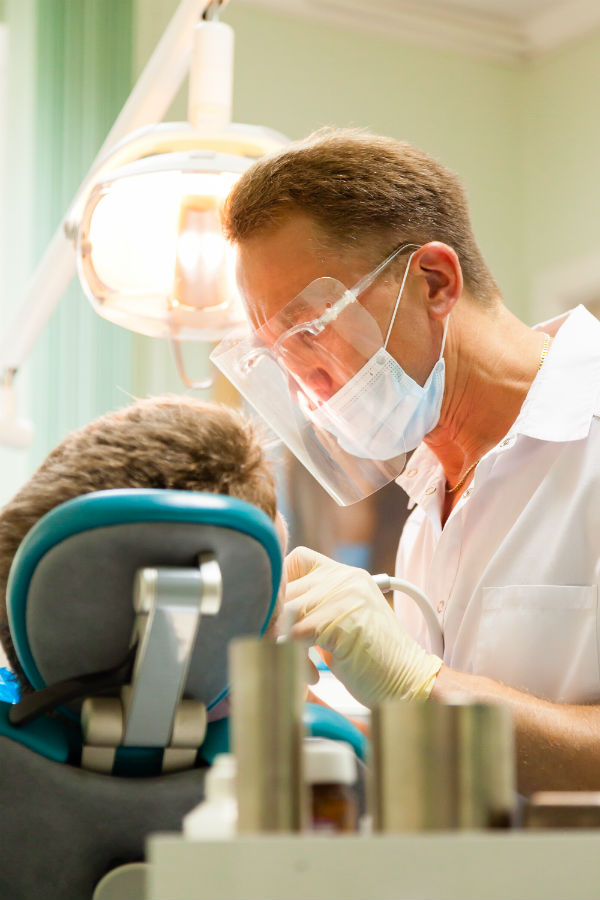
When you think of tooth extractions, you may picture a child's first wobbly tooth or the more complex procedure surrounding wisdom tooth removal. However, some adult patients need tooth extractions other than wisdom tooth surgery.

As kids transition from grade school to middle or high school, they're tempted to try grownup activities that aren't necessarily good for them. One of these newest temptations is the use of an electronic, or e-cigarette. This habit, called vaping, is intended to replace tobacco smoke with a vaporized form of the drug. Many believe that vaping is a harmless habit because you’re not inhaling smoke. However, vape pens aren’t any better for your oral health than regular cigarettes. Here’s how you can discuss vaping and its effect on teeth with your kids.

If your enamel looks almost perfect with no signs of tooth decay, you might think it's okay to put off your dental appointments. Even if you think your teeth are healthy, cavities can show up in places you can't see with the naked eye. If you don't find and treat the decay, it can potentially cause lifelong problems for you, including pain and infection. Here are things to know about hidden tooth decay and what you can do to detect it and protect your teeth from having problems.
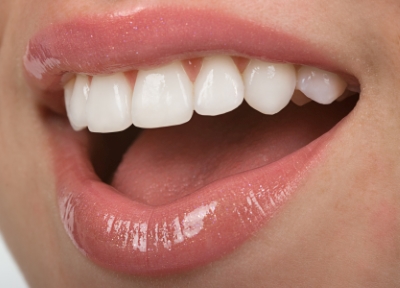
Around 57 percent of adults aged 20 to 50 suffer from sensitive teeth. If you having trouble enjoying a glass of ice water or hot cup of coffee, you might struggle with this issue. Going to the dentist is the first step in determining whether you have sensitive teeth and what you can do to avoid the discomfort. Here are a few of the most common reasons why you're dealing with sensitive teeth, ways to prevent sensitive teeth and treatment options available.
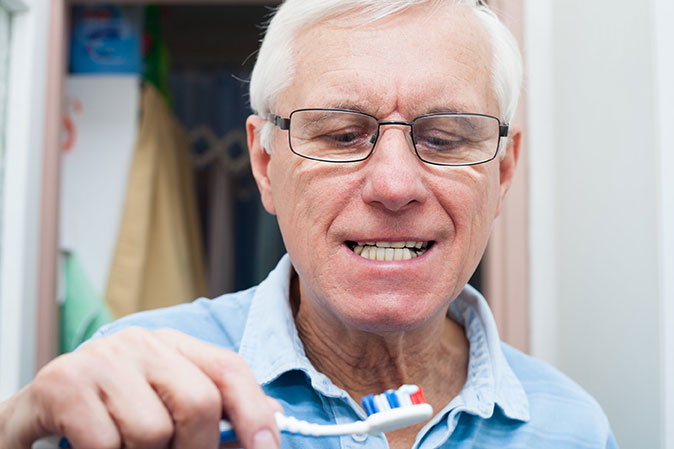
As you get older, several factors put you at higher risk for oral health problems. Thinning enamel, gum disease, ill-fitting dentures, side effects of certain medications and medical conditions such as diabetes, arthritis and osteoporosis can increase your need for dental treatment.

Dental procedures can take significant period of time. Receiving a traditional crown is one of the most notoriously lengthy treatments. Luckily, more and more patients now have the option to choose CEREC same-day crowns instead.

If you've spent years being slightly to extremely dissatisfied with your smile (and its impact on your overall appearance), you may have considered dental veneers as one of your restorative options.

All parents want their kids to have healthy teeth and gums. That's why endless hours go into making dental care more fun, and moms and dads strive to motivate their children to brush their teeth for a full two minutes each night. Regular visits to the dentist are also an important part of helping kids attain optimal oral health.

Tooth injuries are an unfortunate reality, especially for young children who have not developed the best coordination and muscle control. Many times, tooth injuries are superficial, and they heal just as quickly as an injury to any other part of a fast-growing child's body.

Even though your child will start losing them in elementary school, baby teeth are essential for your little one's ongoing dental health. They allow your child to chew and to develop proper speech patterns, and they guide the adult teeth into place. A lifetime of good dental health starts with proper dental care during your child's first year of life. Follow these six tips for a healthy first year!
